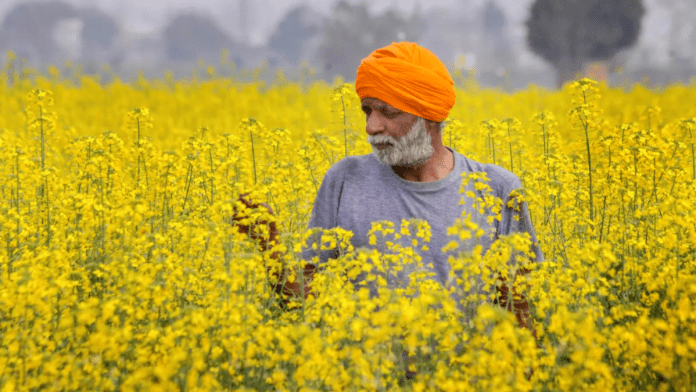News in brief:
-Â Indian mustard farmers are facing a crisis as mustard prices have sharply declined in the past two years, attributed to a surge in edible oil imports.
– Experts warn that continued import growth could worsen the situation and they urge the government to invest in mechanisms to procure mustard crops at better prices.
Indian mustard farmers are grappling with a significant decline in mustard prices, which have dropped to INR 5200 ($65) a quintal (or 100 kilograms) from INR 7500 ($93) just two years ago.
The sharp downward trend is attributed to a surge in edible oil imports, which have increased by nearly 2.4 million tonnes in a single year, a news report said.
With prices plummeting, mustard cultivators in states like Madhya Pradesh, Rajasthan, and Uttar Pradesh, who have traditionally relied on mustard as their preferred oilseed crop, are under considerable distress. Mustard not only provides a valuable source of edible oil but also yields the highly sought-after leafy vegetable and possesses significant medicinal properties.
Subsequently, experts warn that if edible oil imports continue to rise unabated, the plight of mustard farmers will only worsen. Instead of focusing on imports, they advise the Indian government to prioritise investing in mechanisms to enhance procurement of mustard crops at better prices.
The crisis facing mustard farmers extends to other traditional oilseeds in India. These include; groundnuts, sesame, coconut, and several minor oilseeds. The broader crisis is also linked to the influx of cheaper edible oils.
Moreover, the government’s plans to rapidly expand palm oil fruit tree plantations in India pose an additional threat to traditional oilseed growers.
If these plans materialise, the Indian edible oil market will be flooded with cheaper, less healthy edible oils, both imported and locally produced. It will diminish the prospects of farmers cultivating traditional oilseeds, in spite of their diverse nutritional and health benefits and their suitability within existing crop-patterns and rotations.
The government’s promotion of genetically modified (GM) mustard crop varieties is another cause for concern. GM crops have been associated with several adverse health, agricultural, and environmental impacts, with experts calling for a careful reconsideration before widespread adoption.



